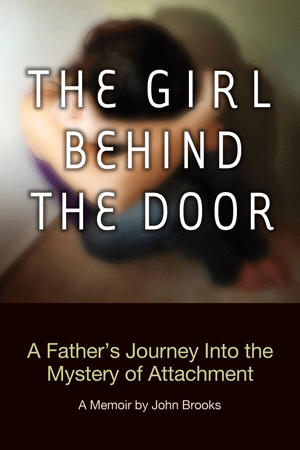 I’ve learned over time that in adoption circles some people describe the sometimes unusual and extreme behaviors seen in orphaned and abused children as “attachment disorder” while others label it “RAD” (Reactive Attachment Disorder.) What’s the difference and who’s right?
I’ve learned over time that in adoption circles some people describe the sometimes unusual and extreme behaviors seen in orphaned and abused children as “attachment disorder” while others label it “RAD” (Reactive Attachment Disorder.) What’s the difference and who’s right?
If Wikipedia is any help, it defines attachment disorder as follows:
“A broad term intended to describe disorders of mood, behavior, and social relationships arising from a failure to form normal attachments to primary care giving figures in early childhood. Such a failure would result from unusual early experiences of neglect, abuse, abrupt separation from caregivers between 6 months and three years of age, frequent change or excessive numbers of caregivers, or lack of caregiver responsiveness to child communicative efforts resulting in a lack of basic trust. A problematic history of social relationships occurring after about age three may be distressing to a child, but does not result in attachment disorder.”
Wikipedia describes reactive attachment disorder (RAD) as follows:
“It is described in clinical literature as a severe and relatively uncommon disorder that can affect children. RAD is characterized by markedly disturbed and developmentally inappropriate ways of relating socially in most contexts. It can take the form of a persistent failure to initiate or respond to most social interactions in a developmentally appropriate way—known as the “inhibited form”—or can present itself as indiscriminate sociability, such as excessive familiarity with relative strangers—known as the “disinhibited form”. The term is used in both the World Health Organization’s International Statistical Classification of Diseases and Related Health Problems and in the American Psychiatric Association’s Diagnostic and Statistical Manual of Mental Disorders.”
My reading of both terms as a layman is that they are interchangeable, saying essentially the same thing. The difference is that RAD is the official term used by professionals featured in medical journals. So in that sense, those using RAD are probably technically correct. The problem I have with this is that too often RAD is used as a pronoun, as in “my RAD” or “my RADie” and other variations thereof, as opposed to “my child.” I cringe at these references.
I realize that many exasperated adoptive parents at their wits end need anonymous places to go online and rant. I wish I’d known of such places when I was an adoptive parent. Trust me, I’m ashamed to say that there were times when I slapped (or tried slapping) my teenage daughter Casey for her attitude and language; she could hardly complete a sentence without the s-word or f-word. Of course now that Casey’s passed, these are things my wife Erika and I laugh about. How trivial in the grand scheme of things.
But when RAD becomes a pronoun, even anonymously, it seems to further stigmatize a child who is already stigmatized. One’s child is no longer a child, but a thing. Why encourage this type of thinking?
The broader issue, as I’ve learned from attachment experts, is that both attachment disorder and RAD are overused as convenient labels for behavioral problems that are far more complex. The experts are quick to note that there are multiple factors that play into an orphaned child’s behavior that can’t be diagnosed due to the lack of information about birth families – fetal alcohol syndrome, substance abuse and a wide range of mental health issues from depression to bi-polar to schizophrenia. So when I speak about attachment I’ve learned to use the much broader term “attachment issues” rather than attachment disorder or RAD.
I just hate to stigmatize children for behaviors – as irritating as they are – from experiences that they never asked for.
Written By John Brooks
Attachment Disorder Or RAD? was originally published @ Parenting and Attachment and has been syndicated with permission.
Our authors want to hear from you! Click to leave a comment
Related Posts






There are many more concerns about the AD diagnosis. AD is the invention of a fringe psychotherapy (Attachment Therapy, aka Holding Therapy, Rage Reduction, etc.) that inflicts a brutal therapy and parenting method on adopted and foster children. Use of this catch-all diagnosis was condemned in 2006 by APSAC and the APA’s Division on Child Maltreatment; child welfare workers are advised to investigate where a child has been labeled with AD.
“RAD vs AD”
http://www.childrenintherapy.org/attachmentdisorder.html